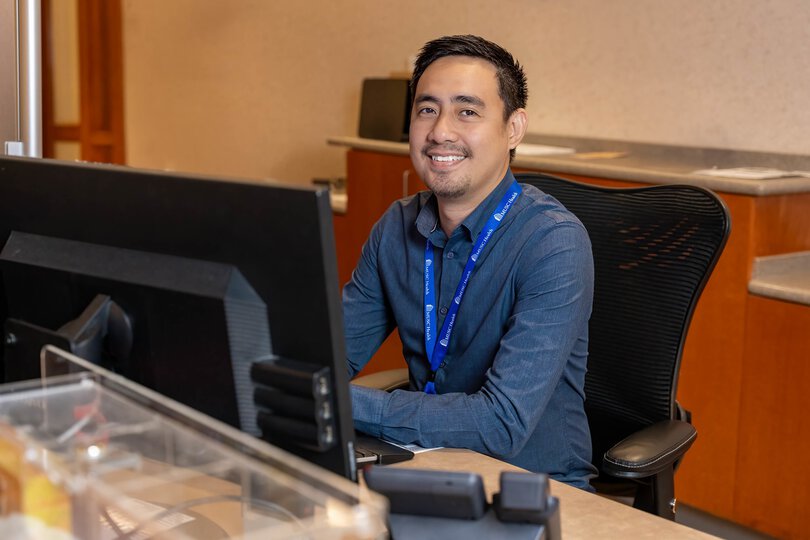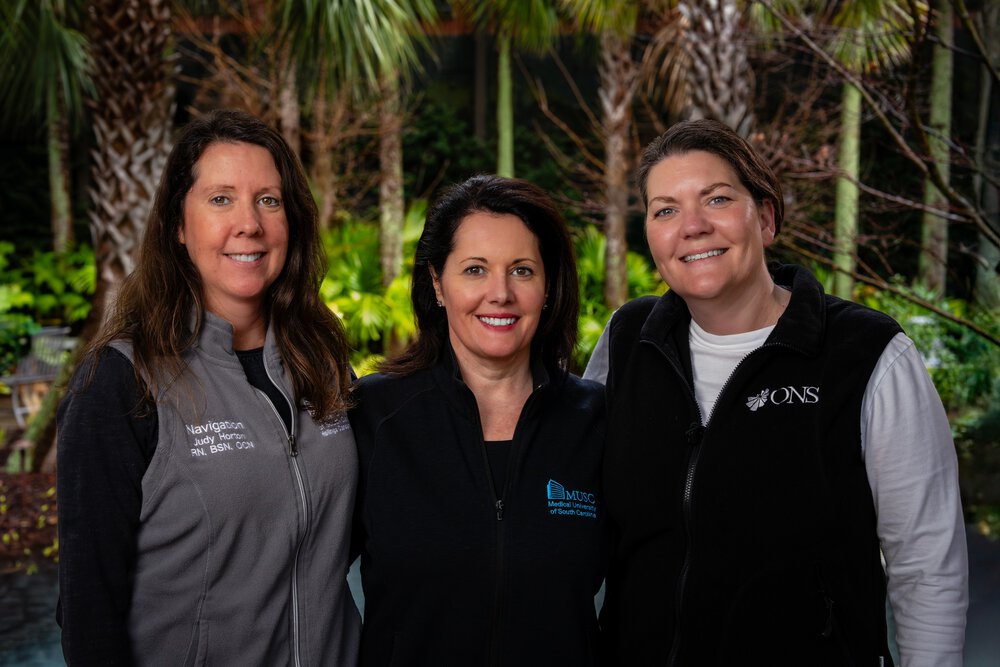Navigation Program
A cancer diagnosis is overwhelming, often leaving patients wondering where to turn and what happens next. At MUSC Hollings Cancer Center, patients with complex diagnoses and their families don’t have to do it alone, thanks to our nationally-recognized navigation program.
We treat some of the region’s most challenging and complex cases with multidisciplinary care teams, and navigators are a vital part of the teams. A navigator acts as a liaison between the care team and the patient, helping ensure that the patient gets access to the care, treatment and resources they need and are kept informed about what to expect.



